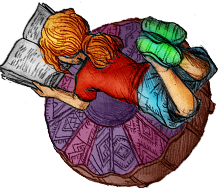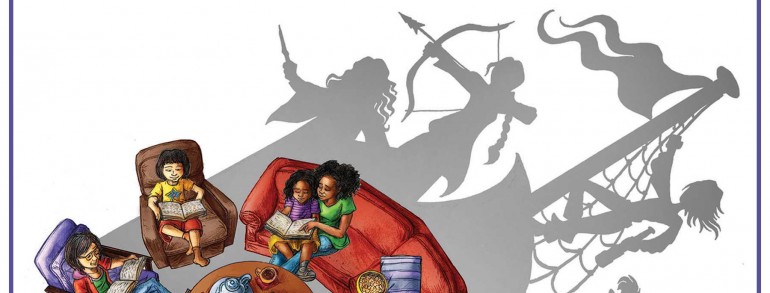Given the recent debacle that we discussed at length on the Her Next Chapter Facebook page about the Barbie book (where she wants to be a computer engineer but needs boys to help her code and deal with viruses,) don’t we want better for our girls? I’m going to tell you about a way that you can help subvert these kinds of messages about girls.
Physicist and astronaut Sally Ride once said: “Young girls need to see role models in whatever careers they may choose, just so they can picture themselves doing those jobs someday. You can’t be what you can’t see.” This is precisely the philosophy of SheHeroes, a non-profit organization focused on inspiring and empowering girls, ages 8-14, to pursue non-traditional careers. Originally founded by three women from MIT, SheHeroes has an all-female team that produces web videos profiling women who are powerful leaders in their respective fields.
These educational videos give girls a wealth of role models across diverse industries and backgrounds, proving that they too can become whatever they dream. Sheheroes is launching an Indiegogo campaign to raise funds to capture the stories of six accomplished women in Science, Technology, Engineering and Math (STEM).
In Her Next Chapter and for many other publications, I’ve written extensively about today’s media and marketing culture for girls, and how they are subjected to unhealthy, hyper-sexualized and stereotyped “role models.” According to the Geena Davis Institute on Gender in Media, in most G-rated films female characters are shown pursuing romance. Further, media and toy marketing campaigns strongly influence girls’ career goals by reinforcing gender stereotypes that severely limit their choices as women. Maria Montessori is often quoted as saying “play is the work of the child,” and I couldn’t agree more. Career development begins in childhood, but children often limit their career goals to careers stratified by gender, and this problem is only getting worse.
In 2008, an Associated Press review of accredited forensic science programs in the United States found that about 75 percent of graduates were women, an increase of about 64 percent from 2000. Among other factors, academics call this the “CSI effect,” noting that popular prime-time TV shows like CSI, Bones and NCIS that prominently feature women in forensic science have greatly influenced the growing number of women entering these fields.
A study conducted by researchers, Julie L. Quimby and Angela M. DeSantis in 2006 noted that, “exposure to role models via videos increases students’ likelihood of considering non-traditional careers.” Marie Wilson, the founding president of the White House Project, is credited with originally saying, “You can’t be what you can’t see,” the quote that Sally Ride understood so well. In the world of girl empowerment, this has morphed into “if she can see it, she can be it.” We need to show girls what they can be, because if we don’t, the corporations and marketers will gladly do it for us.
SheHeroes has produced 12 videos and has directly reached nearly 50,000 girls online. SheHeroes has profiled the likes of Polly Baca, the first Latina to hold a State House and State Senate seat, and Emmy Award winning Carol Jenkins, one of the nations’ first African-American journalists and TV anchors.
In an initial test study conducted by SheHeroes, 80 third graders noted that they felt being a CEO was a man’s job. But after watching just one SheHeroes’ video, a clear majority of students felt all careers were for both men and women. By presenting profiles of successful and inspirational women, SheHeroes not only alters the way girls view themselves and their potential, but also the way boys view girls and women.
Today SheHeroes will launch an Indiegogo campaign to raise funds to create six videos of women who excel in #STEM careers. The videos, all produced in-house, are a vital and accessible online resources for students, parents and educators. Most importantly, SheHeroes’ online content provides young girls with diverse role models, showing them that they can excel in any career of their choice.
Please consider supporting my colleagues at SheHeroes in their effort to help girls see that they can do anything boys can do. If you’re frustrated with the disempowering “role models” out there for girls, here is something proactive you can do as an individual to help change that.
Please click here to help! Thank you so much for supporting the work of my colleagues. Together, we really can make a difference!

